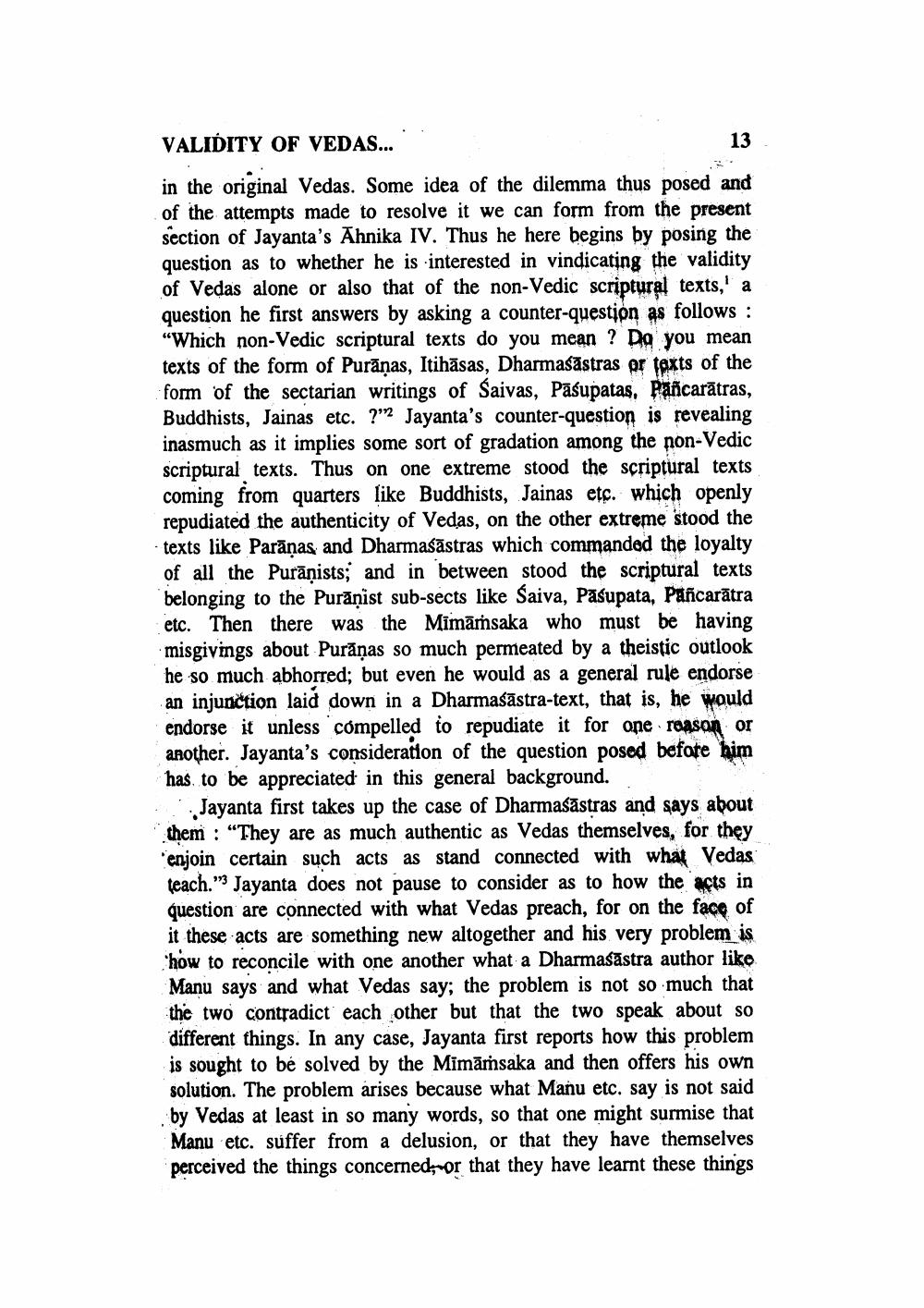________________
VALIDITY OF VEDAS...
13
in the original Vedas. Some idea of the dilemma thus posed and of the attempts made to resolve it we can form from the present section of Jayanta's Ahnika IV. Thus he here begins by posing the question as to whether he is interested in vindicating the validity of Vedas alone or also that of the non-Vedic scriptural texts,' a question he first answers by asking a counter-question as follows : “Which non-Vedic scriptural texts do you mean? Do you mean texts of the form of Purāņas, Itihāsas, Dharmaśāstras or texts of the form of the sectarian writings of Saivas, Pāśupatas, Pafcarātras, Buddhists, Jainas etc. ?!? Jayanta's counter-question is revealing inasmuch as it implies some sort of gradation among the non-Vedic scriptural texts. Thus on one extreme stood the scriptural texts coming from quarters like Buddhists, Jainas etc. which openly
repudiated the authenticity of Vedas, on the other extreme stood the - texts like Parānas and Dharmasastras which commanded the loyalty
of all the Purānists, and in between stood the scriptural texts belonging to the Puranist sub-sects like Saiva, Pasupata, Pañcarātra etc. Then there was the Mimārsaka who must be having misgivings about Purāṇas so much permeated by a theistic outlook he so much abhorred; but even he would as a general rule endorse an injunction laid down in a Dharmaśāstra-text, that is, he would endorse it unless compelled to repudiate it for one reason or another. Jayanta's consideration of the question posed before him has to be appreciated in this general background
Jayanta first takes up the case of Dharmaśāstras and says about them : "They are as much authentic as Vedas themselves, for they enjoin certain such acts as stand connected with what Vedas teach." Jayanta does not pause to consider as to how the acts in question are connected with what Vedas preach, for on the face of it these acts are something new altogether and his very problem is how to reconcile with one another what a Dharmaśāstra author like Manu says and what Vedas say; the problem is not so much that the two contradict each other but that the two speak about so different things. In any case, Jayanta first reports how this problem is sought to be solved by the Mimāṁsaka and then offers his own solution. The problem arises because what Manu etc. say is not said by Vedas at least in so many words, so that one might surmise that Manu etc. suffer from a delusion, or that they have themselves perceived the things concerned, or that they have learnt these things




